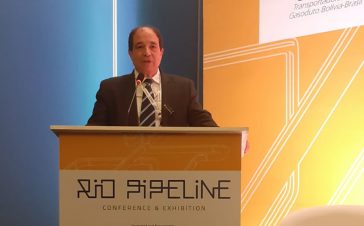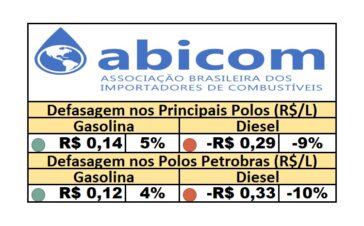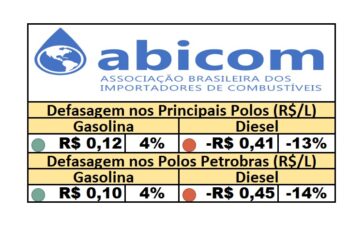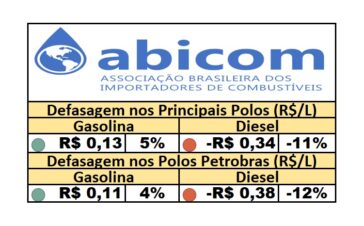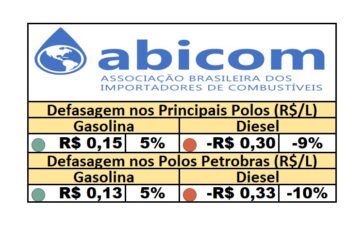O posicionamento da Abicom foi focalizado com destaque em notícia do site S&P Global sobre a alteração das regras para importação de etanol anidro, pelo governo brasileiro, que aumentou a cota de importação, com isenção do imposto de importação, em 150 milhões de litros, passando de 600 milhões de litros por ano para 750 milhões e eliminou a distinção entre cota “a” e cota “b”. A unificação da cota foi um pleito da Abicom ao Ministério da Economia, com objetivo de promover a livre concorrência e estimular a realização de investimentos. A notícia informa que a Abicom defendeu a alteração do critério para distribuição das cotas, pois o critério definido na antiga Resolução favorecia apenas cinco empresas, reduzindo o número de participantes do mercado nessa atividade. “Para o grande número de importadores, o menor volume por cota não terá grande impacto”, disse a pesquisadora da Abicom Milena Mansur, observando que o mercado ganhará competitividade. “A partir de agora, produtores, distribuidores e importadores de etanol terão o mesmo acesso a cotas de importação gratuitas”.
Leia a notícia na íntegra:
Brazil changes free ethanol import rules
04 sep 2019
Sao Paulo — The Brazilian government changed ethanol import rules August 31, increasing the import quota by 150 million liters, moving from 600 million liters per year to 750 million.
The import tax remained unchanged at 20% for volumes exceeding 187.5 million liters each quarter. This new regulation will be in effect until August 31, 2020.
After the new import quota was announced, market participants voiced concerns about how it would be implemented.
During the first 24 months of free import quotas, from August 31, 2017 to August 31, 2019, the quarterly quota of 150 million liters was split between quotas A and B. Companies placed in quota A had access to 50% of the total quota, but could also place orders to access the additional volume available in quota B. Quota A companies could request 7,500 million liters, while companies listed in quota B could request 3,750 million liters.
The Brazilian Association of Fuel Importers, ABICOM, pushed local authorities to withdraw these quota mechanisms, arguing that they favored only five companies and reduced the number of market participants in that niche.
A public ordinance was published Tuesday by the official union, changing the criteria to request an import license. As of September 3, all companies applying for an import license will need to place their orders in the Portal of Foreign Trade, Siscomex, requesting a maximum quota of 2,500 million liters. The import license will be granted according to the order of registration request.
“For the large numbers of importers, the lower volume per quota will not have a big impact,” said Abicom researcher Milena Mansur.
The impact will mostly be felt by the three larger Brazilian ethanol importers, Raizen, Copersucar and BCI, who will now contend with more competitors in the market.
It is still not clear how smaller companies will deal with the lack of infrastructure to import their quotas, but a possible scenario is a pool of companies working together to charter a ship and rent terminal capacity.
“The market will gain competitiveness,” said Mansur. “From now on ethanol producers, distributors and importers will have the same access to free import quotas.”
— Nicolle Monteiro de Castro, nicolle.castro@spglobal.com
— Edited by Zac Aiuppa, newsdesk@spglobal.com



